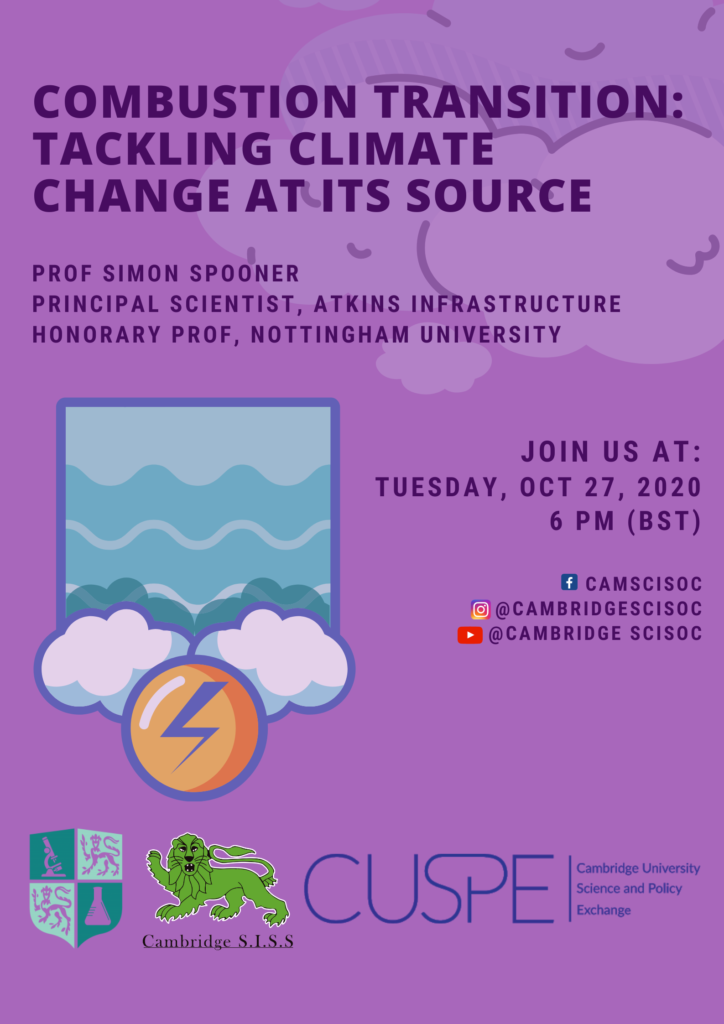
- This event has passed.
Combustion Transition: tackling climate change at its source – Prof. Simon Spooner
27 October 2020 | 18:00 - 19:30
Event Navigation

This talk is co-hosted by the Cambridge University Social Impact and Sustainability Society and the Cambridge University Science and Policy Exchange.
This talk is open to all regardless of membership.
Register your interest here.
Abstract
Combustion Transition is a framework based on the principle that the cause of climate change is the over-exploitation of the process of combustion. GHG emissions and other air pollution are mostly a consequence of the combustion of material that is residual from life processes. The combustion process provides the power that drives our current industrial society and it is in the combustion chamber that most of the economic value of fossil fuels is realised. Focussing on combustion rather than carbon leads to a better understanding of and strategies for how to tackle climate change. It also allows the development of effective metrics and economic measures for managing the transition. Though a very new concept, Combustion Transition has been already applied through Atkins in the development of the Oman National Spatial Strategy. The talk will first outline the philosophy and principles behind Combustion Transition, and then run through how metrics (e.g. combustion rather than carbon accounting) and possible economics measures (combustion transition funds) arise from these and demonstrate with some examples.
Speaker profile
Simon Spooner has 25 years experience in UK and China of water and environmental management – planning and financing projects, designing and optimising infrastructure – and how government policy and regulation works and develops. He works for Atkins, the UK’s largest technical consultancy. He spent more than a decade in China, as Atkins Technical Director and as a programme manager of the EU-China River basin management programme and before that many projects for World Bank, DfID, OECD, UK FCO and European Union as well as Chinese local government clients. He is an Honorary Professor of Nottingham University in UK and in China as well as a visiting lecturer at Cambridge, Tsinghua, Wuhan, and Nottingham Ningbo Universities, and is a prominent figure in UK/Europe – China environmental and industrial groups.

